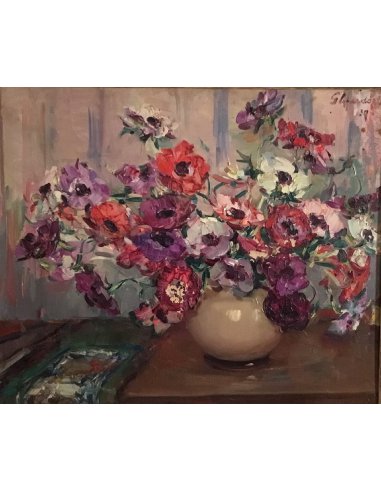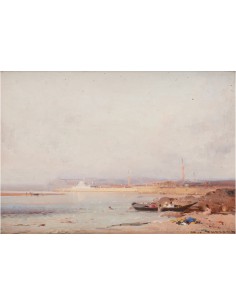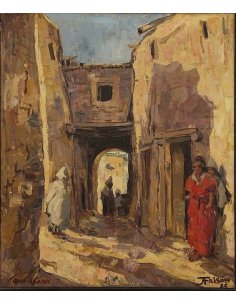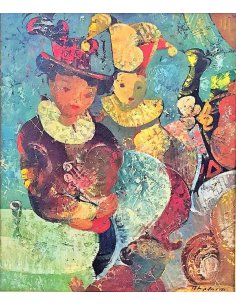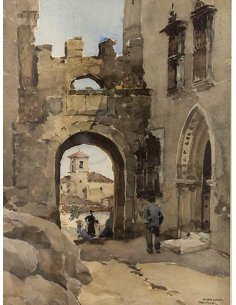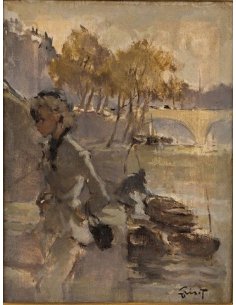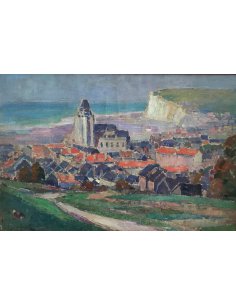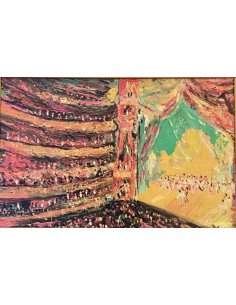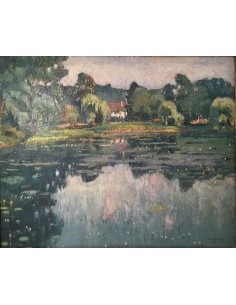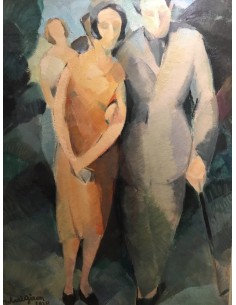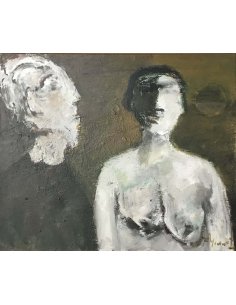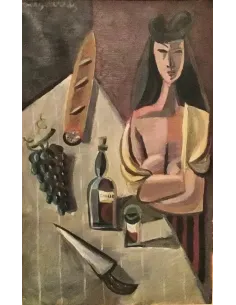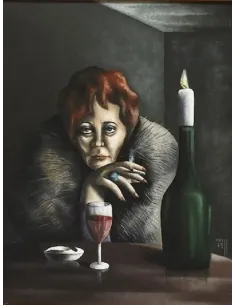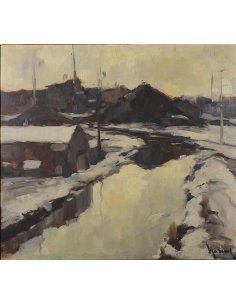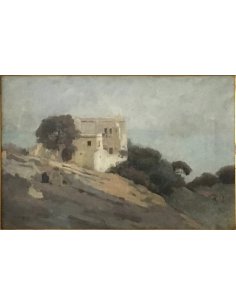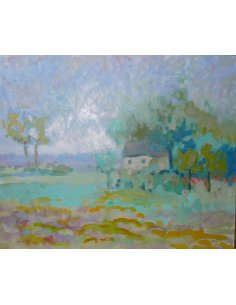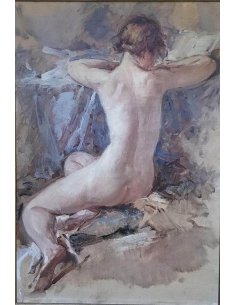Flower still life by Hubert Glansdorff from 1939.
Oil on canvas, signed and dated upper right Glansdorff 39.
Hubert Glansdorff's painting depicts a harmoniously composed floral still life in luminous colors, executed with a pasty, vibrant brushwork. A lush bouquet of red, purple, and white anemones unfolds in a simple, bulbous ceramic vase placed on a table, spreading freely across the picture plane. The flowers are loosely composed, almost dynamically, as if they had just been freshly arranged. The neutral background with its delicately modulated hues draws the eye to the play of light and color in the foreground.
The work exemplifies Glansdorff's characteristic style, which combines painterly spontaneity with compositional balance. The intensely colored blossoms and the visible texture of the paint application lend the motif a vibrant freshness and depth. This still life is a typical example of his mature creative phase of the 1930s, in which Glansdorff fully developed his masterful control of light, color and atmosphere.
About the artist:
Hubert Glansdorff (1877 Ixelles/Brussels –1963 Knokke)
Hubert Glansdorff completed his artistic training at the Académie Royale des Beaux-Arts under J. Stallaert in Brussels. Glansdorff's work can be classified as Belgian figurative painting of the early 20th century.
His work primarily includes portraits, figure studies, flower still lifes, and interiors. His work is characterized by a balanced composition, a fine sense of light, and a harmonious, often warm color palette. His brushwork is vibrant and demonstrates a sure hand.
Stylistically, Glansdorff is close to Belgian Luminism without being tied to a clearly definable school. His flower and figure paintings, in particular, combine technical precision with painterly sensitivity.
Glansdorff worked primarily in Brussels and on the Belgian coast. Today, his works are traded on the international art market and are valued by collectors and galleries for their craftsmanship and distinctive color aesthetic.

